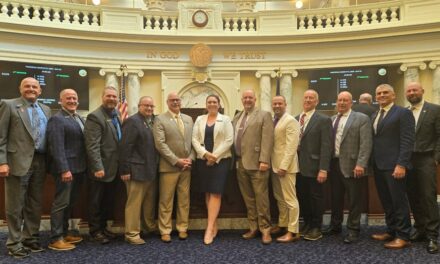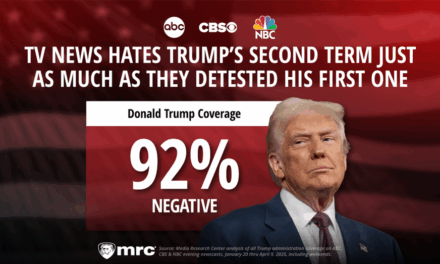In a surprising turn of events, a columnist from the Washington Post has proposed that former President Donald Trump might be instrumental in achieving peace in Ukraine. This assertion has ignited discussions among political analysts, scholars, and the general public alike, raising questions about Trump’s foreign policy approaches and their potential implications.
The ongoing conflict in Ukraine, characterized by the war between Ukrainian forces and Russian-backed separatists, has persisted for several years, leading to significant loss of life and widespread devastation. The international community has largely rallied behind Ukraine, with the United States and its allies providing financial and military support to the Ukrainian government. In contrast, Russia remains steadfast in its pursuit of territorial control and influence over the region.
Trump’s presidency was marked by a distinctive approach to foreign policy, often favoring unilateralism and personal diplomacy over multilateral agreements and conventional diplomatic channels. While much of his foreign policy was controversial, some analysts argue that his assertive stance may offer a unique perspective in addressing the nuances of the Ukraine crisis.
In particular, the Washington Post columnist emphasized Trump’s penchant for direct negotiations and willingness to engage with adversaries. This style of diplomacy could serve as a catalyst for discussions that might lead to de-escalation in Ukraine, a prospect that may seem improbable given the entrenched positions of both Russia and Ukraine.
For Trump, the notion of engaging with Russia is not entirely foreign; during his presidency, he often advocated for cooperation with Russian President Vladimir Putin. Supporters of this approach argue that establishing a dialogue with Russia could potentially lead to advantageous agreements that could help stabilize the region. Trump’s critics, however, have been quick to highlight the risks involved, arguing that engaging with a nation that has demonstrated aggressive military strategies poses dangers to international norms and encourages further aggression.
Moreover, former President Trump has also voiced skepticism about extensive military involvement in foreign conflicts, suggesting that his administration would have sought to withdraw U.S. troops from various engagements around the world. Some commentators posit that this focus on minimizing U.S. military footprints abroad could resonate with a war-weary American public, facilitating a broader support base for alternative approaches to dealing with the situation in Ukraine.
Despite these discussions, questions remain regarding the feasibility of Trump’s potential influence on peace negotiations in Ukraine. Critics assert that the structural dynamics of the crisis—namely, Russia’s unwillingness to compromise and Ukraine’s determination to reclaim lost territory—present formidable obstacles to any diplomatic solution. The idea of peace under Trump’s leadership might be perceived as naïve, given the complexities involved.
The column in the Washington Post does not overlook these barriers but suggests that Trump’s approach could at least initiate a conversation about the paths to resolution that have yet to be explored. By introducing fresh perspectives and breaking traditional diplomatic molds, Trump may inadvertently open new channels for dialogue that have been previously dismissed.
This column aligns with a broader narrative suggesting a shift in political attitudes within the Republican Party concerning foreign policy. Increasingly, members of the party have exhibited more isolationist tendencies, questioning the necessity and effectiveness of prolonged military engagements overseas. This evolving stance may signal a growing acceptance among GOP ranks of alternative methods to secure U.S. interests abroad, bringing Trump’s unconventional views into focus.
Some analysts argue that in a time when the international order is experiencing unprecedented challenges, innovative foreign policy strategies are essential. They assert that experimenting with new diplomatic models—such as the ones proposed by Trump—may help create a more flexible response to situations like the one unfolding in Ukraine. If Trump can successfully bring together the disparate perspectives on Ukraine in a cohesive dialogue, he may, indeed, carve a niche for himself in peace negotiations.
The dialogue surrounding Trump’s potential role in Ukraine peace negotiations is not without its complexities. While some advocate for exploring his unique diplomatic style, others remain firmly rooted in caution. The conflict’s deep-seated historical grievances and nationalistic sentiments among both Ukrainians and Russians could thwart any attempts at conciliation, regardless of the negotiator’s approach.
Furthermore, the notion that any political figure, especially one as polarizing as Trump, could be a peace broker raises significant ethical concerns. The memories of his administration’s controversies continue to color perceptions of his leadership, limiting bipartisan support for any peace initiatives he may propose. Such sentiment could hinder the necessary collaboration among lawmakers that would be critical to support a robust approach to foreign policy.
Additionally, Trump’s past remarks and actions regarding NATO and European allies have raised eyebrows, causing uncertainty about his commitment to traditional alliances. Any foreign policy attempts should ideally be carried out in coordination with key partners, ensuring a unified approach toward the conflict, which is particularly sensitive given NATO’s involvement in regional security.
As the geopolitical dynamics continue shifting and evolving, the discourse surrounding the Ukraine conflict remains one of the most pressing issues on the international stage. Within the political tapestry of the United States, shifting attitudes toward military intervention and diplomatic engagement continue to evolve, creating spaces for unconventional approaches to emerge. The potential for Trump to assume a pivotal role in mediation efforts relies not just on his willingness to engage but also on the collective understanding of peace mechanisms within the international community.
The way forward is fraught with challenges, and for many, the optimism surrounding Trump’s potential involvement in Ukraine peace efforts may appear misplaced. Nevertheless, it brings to the forefront critical questions about alternative diplomatic engagement strategies and the necessity of reconsidering entrenched positions. As discussions unfold, the focus will remain on whether any emerging path, perhaps guided by unorthodox figures like Trump, can realistically contribute to stabilizing the situation in Ukraine and restoring peace and security to a region long marked by turmoil.
As the world watches, the interplay between Trump’s personal diplomacy and the intricate dynamics of the Ukraine conflict continues, revealing the vast complexity of reconciling differing national interests on the global stage. The evolving perspectives around this vital issue signal that, no matter how divisive Trump may be, the notion of peace remains a central objective that extends beyond the realm of individual leadership styles. The future of Ukraine may rely upon not just who tries to lead the charge toward peace, but also how willing parties on all sides are to engage in earnest dialogue and compromise.
































